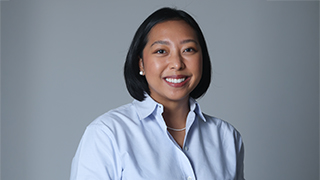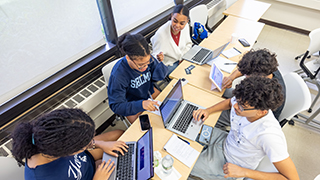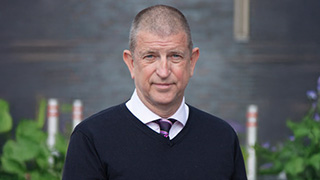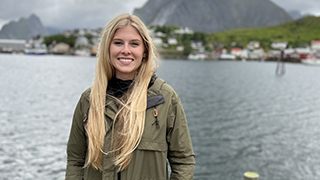Holocaust Remembrance Event
Monday, February 13, 2023
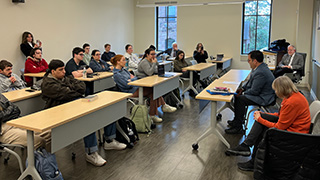
Second-year students in the secondary education program.
On Tuesday, Feb 7, The Center for the Study of Genocide and Human Rights at Rutgers University (a UNESCO Chair), and the Educational Studies Department at Seton Hall hosted a Holocaust Remembrance event. The session was also made possible through the support of The Museum of Human Rights, Freedom, and Tolerance, as well as the Kupferberg Holocaust Center at the Queensborough Community College of the City University of New York. Several faculty members, visiting scholars, and colleagues from Rutgers University attended the session virtually, along with Alex Hinton, Ph.D. (Executive Director of the Center) and one of his classes. Attending in person were second-year students in the secondary education program.
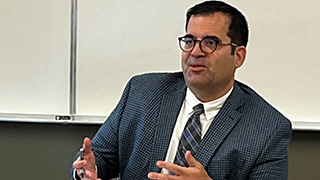
A photo of Mr. Joe Lemkin, nephew of Rafael Lemkin.
Mr. Joe Lemkin shared his family story. His uncle, Rafael Lemkin is credited with coining the term genocide and was a prime organizer of the Genocide Convention. He focused on the need for people to listen to those who bear witness to the Holocaust. In a time of rising anti-Semitism and Holocaust denial, these opportunities are important.
Mr. Igor Kotler spoke of his experiences and of the work of The Museum of Human Rights, Freedom, and Tolerance.
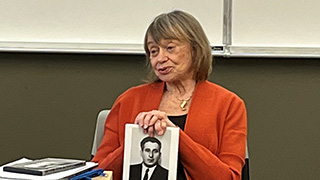
A photo of Ms. Fran Malkin, Holocaust survivor & witness to history.
Ms. Fran Malkin provided a powerful and moving account of her experiences. This was the 3rd time that she has given witness to students in the Secondary Education Program (the first time since the pandemic). Her story involved remembering the destruction of most of her family, and recollections as a young child of a world of horrors that she could not understand. Hiding in the home of a Catholic woman and her daughter, Fran shared her family's awful choice to protect everyone hiding in the house and the owners, from the Nazis.
During the question-and-answer session, students and Ms. Malkin discussed the implications for today. In many different ways, the question of what to do was asked. As future educators, the powerful role of each of them will have been addressed. Using that role to demonstrate and act for respect, tolerance, and understanding of differences teach more than any textbook. Helping the young to carefully examine information, and to question facts by using multiple perspectives was discussed. There is a need to help the young become more than learned and schooled, but to be humane.
Categories: Education, Nation and World



